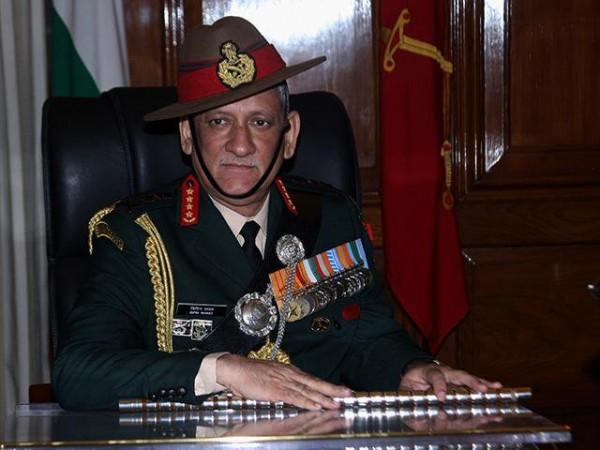The Doklam standoff with China near the tri-junction with Bhutan may only be the first of many such incidents for India, Chief of Army Staff General Bipin Rawat said on Saturday, August 26.
India has been locked in the standoff ever since China looked to change the status quo of the area by building roads there — a ploy that has since been correctly identified by defence strategists as a new move in its Salami Tactics.
China might have expected instant success in this venture, but had not counted on India taking a strong stand against it — one which has received the support of countries like Japan. China has since resorted to every psychological trick in the book to get Indian troops to retreat from Doklam, and appears to be fighting a losing battle there.
More incidents along LAC?
Now, the Indian Army chief has warned of more such transgressions from China along the Line of Actual Control (LAC), which the two countries share.
"The recent stand-off in the Doklam plateau by the Chinese side attempting to change the status quo are issues which we need to be wary about, and I think such kind of incidents are likely to increase in the future," Rawat was quoted by PTI as saying at an event in Pune.
He added: "Transgressions across Line of Actual Control do happen and sometimes they do lead to some kind of misunderstanding between the forward troops. However, we do have joint mechanisms in place to address such situations."
He also said Indian troops in other sectors have to be vigilant. "It is always better to be prepared and alert than think that this will not happen again. So my message to troops is that do not let your guard down," he said.

Resolving Doklam issue
The Doklam standoff started on June 16, when India took a stand against China in the tri-junction area because Chinese troops were seen making themselves comfortable there. China, on its part, has said that it was India that invaded the space.
Rawat said in Pune on Saturday that the Army wants things to go back to how they were before June 16, but China is adamant.
However, a solution is being worked upon nevertheless. "Now it [the push for a solution] is happening at the diplomatic and political level, as it needs to be resolved diplomatically and through political initiatives," he said.
![Indian army soldiers [Representational image] Indian army at border](https://data1.ibtimes.co.in/en/full/658280/indian-army-border.jpg?h=450&l=50&t=40)
Combating China
Rawat also enumerated the challenges India faces from China, explaining how the country has made huge progress in modernisation, transport and other aspects of its armed forces.
"This is due to the development of force infrastructure of military significance. Their force reorganisation along with developing capabilities in space and network-centric warfare is likely to provide them greater synergy in force application," he said.
The Army chief also appeared wary of the increasing diplomatic proximity between China and Pakistan. "The China-Pakistan Economic Corridor (CPEC) passing through Pakistan-occupied Kashmir (PoK) challenges India's sovereignty," he said.















